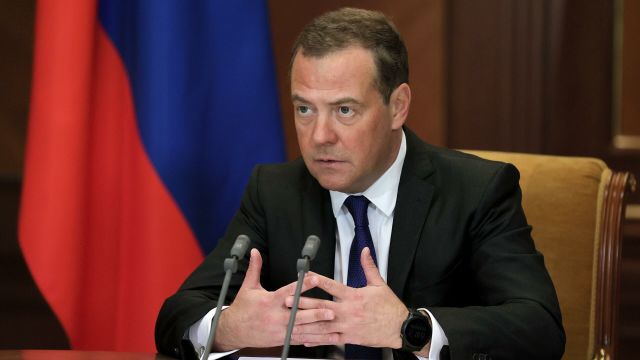After the end of the pandemic, it is important to reconsider the principles of international cooperation in the field of bio-research
Moscow. October 31. INTERFAX - Deputy Chairman of the Security Council of the Russian Federation Dmitry Medvedev said it was necessary to take under international control the activities of laboratories conducting the study of deadly viruses.
On Monday, Rossiyskaya Gazeta published an article by Medvedev on the lessons that humanity must learn after the coronavirus pandemic. In particular, he said that the suspicions of different countries that COVID-19 has a man-made nature are fueling "vaccine nationalism."
"The basis for such statements is the very fact of the existence of laboratories that study deadly viruses in the United States and, what is especially alarming for Russia, on the territory of our CIS partners. The activities of such centers are completely opaque. There is no international control over such studies. The danger of a "leak" of infection, which the world may no longer survive, is quite real," the deputy chairman of the Security Council said.
"Of course, we need a system of control over such laboratories based on the principles of mutual openness. But even more important is the creation of an interstate system of mutual guarantees and full responsibility for the possible consequences of the spread of dangerous substances and drugs," the article says.
Medvedev noted that in the conditions of the global world, the leakage of dangerous substances in a matter of hours can lead to a catastrophe. "In addition, the world community should agree that in emergency situations, states immediately inform each other about the threats that have arisen - biological and any other," he added.
The Deputy Chairman of the Security Council also noted that all countries should fully implement the Convention on the Prohibition of Biological Weapons. In his opinion, after the end of the coronavirus pandemic, it will be important to fundamentally revise the principles of international cooperation in the field of biological research. "Unfortunately, not all of our partners are willing to cooperate in this direction, which causes tension and mutual distrust," he writes.
Medvedev noted that organized crime, terrorist and extremist structures are increasingly moving into the virtual space, which poses a serious threat to the security of many states.
"I mentioned such topics as the joint fight against cybercrime, the cooperation of law enforcement agencies of various states, the development of systems that ensure global security in the digital world. New laws and international conventions on countering terrorism and crime in the virtual space are needed," Medvedev emphasizes.

